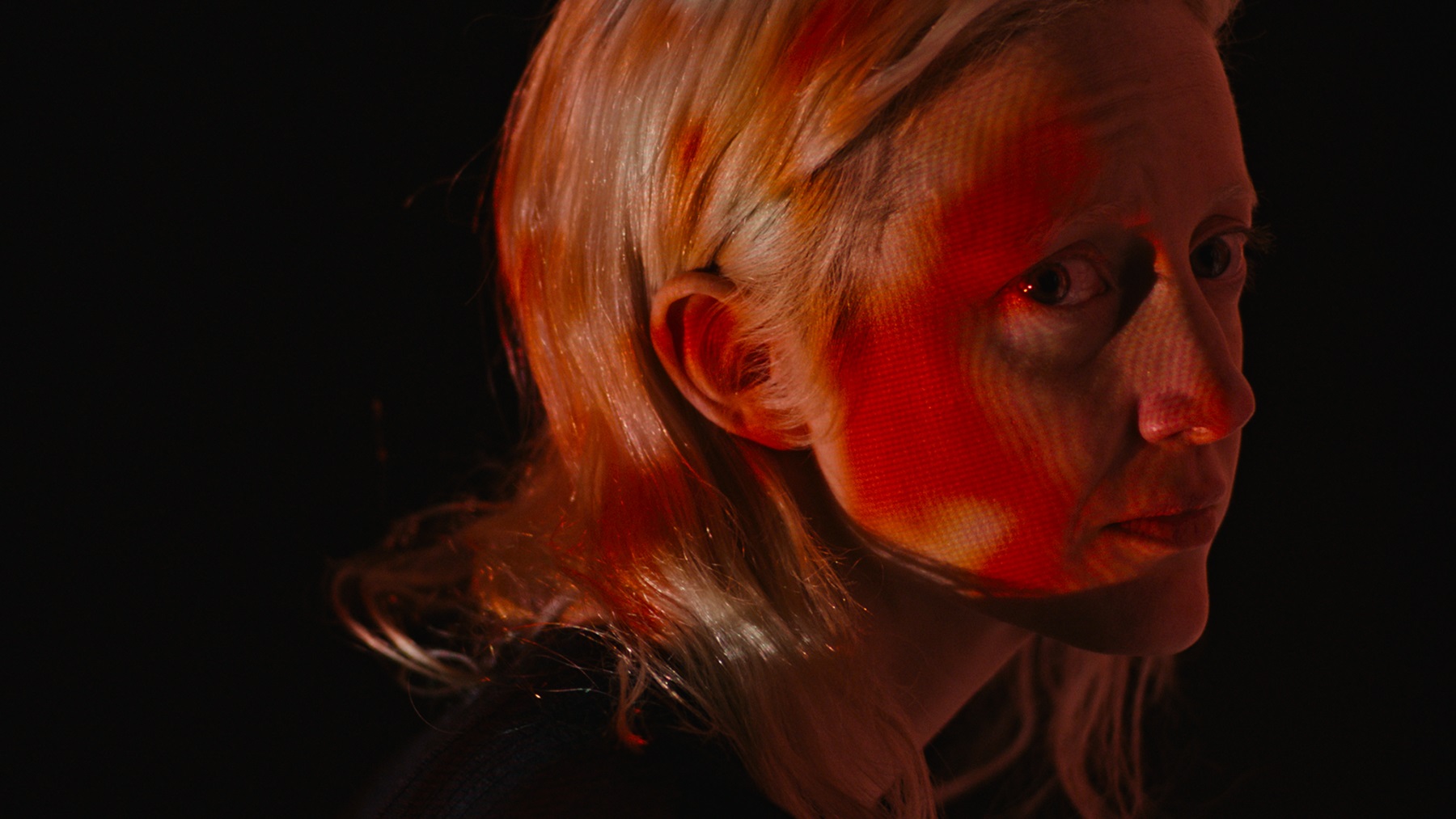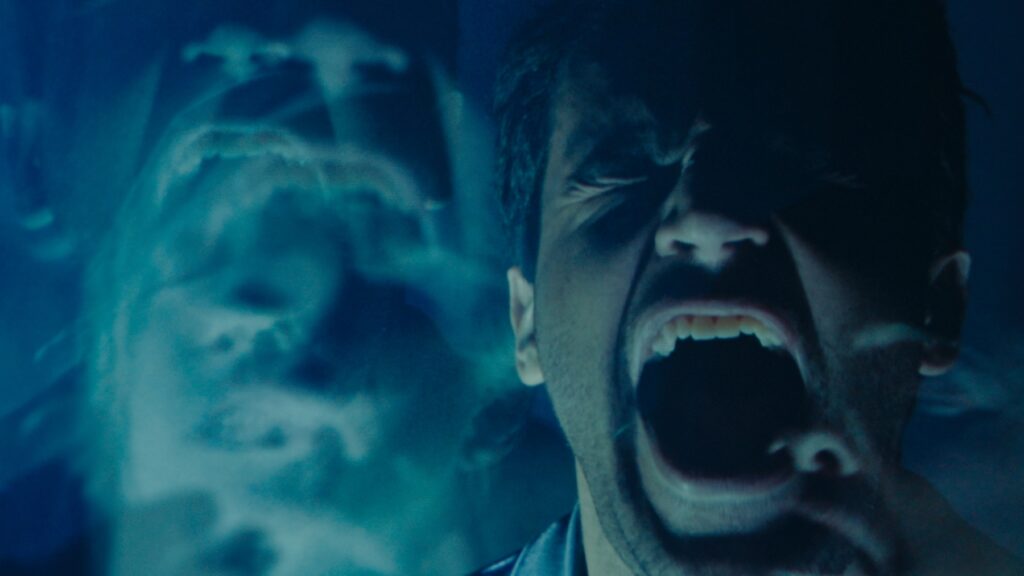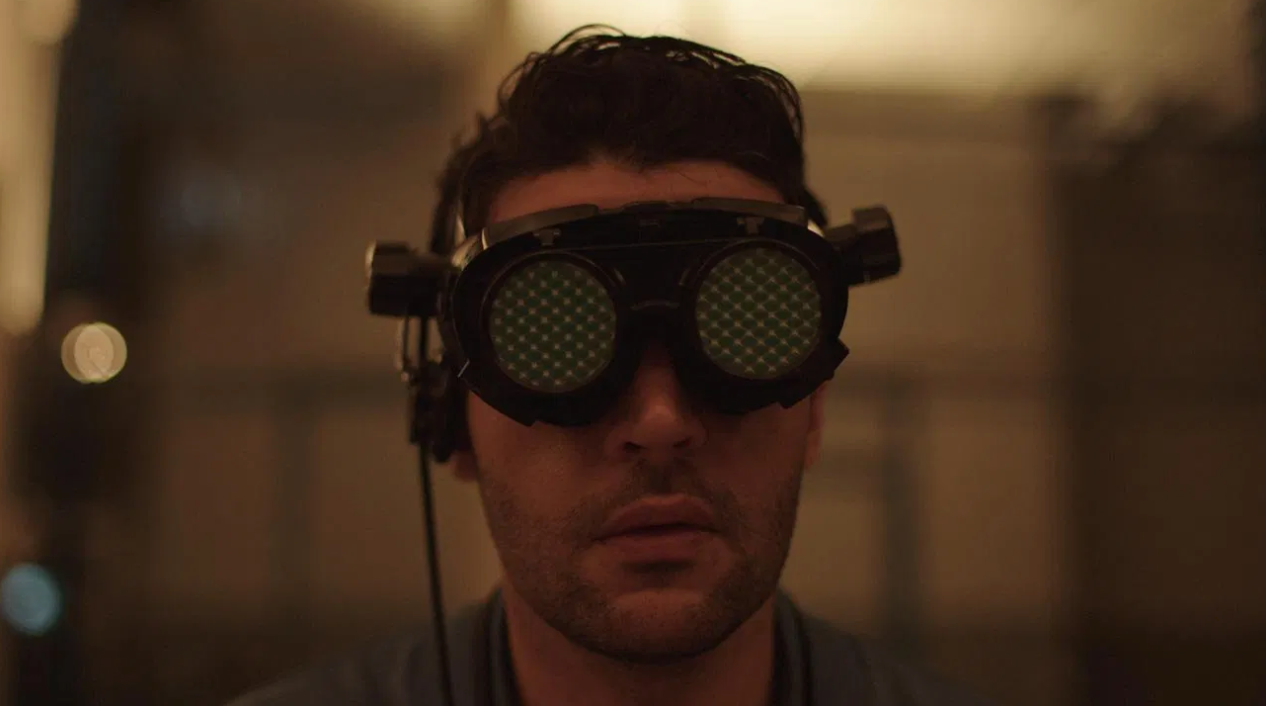With its graphic body horror and interest in the psychological consequences of unholy interactions between technology and flesh, Possessor could have sprung from the mind of David Cronenberg. Actually, this film’s writer-director credit goes to his son, Brandon Cronenberg. The family filmmaking resemblance is so strong, it’s almost as though David has transplanted himself into a younger body…

Possessor begins with a young woman (Gabrielle Graham) jamming some sort of device into her skull, entering a fancy private function and carrying out an exceptionally violent murder, before the cops show up and shoot her to bits. At the same time, in a completely different location, Tasya Vos (Andrea Riseborough) is being removed from a machine. We discover, through some nifty exposition, that Tasya is a contract killer, working for a shadowy company in possession of technology that allows her to parasitically enter other people’s bodies in order to carry out corporately-motivated assassinations.
As you’d imagine, body-hopping around like this comes at a huge mental cost. Even at the beginning of the film, Tasya is having a tough time holding onto her memories, and it takes considerable effort to get into character as herself to interact with her ex-husband and son. But soon she’s off on her next mission: possessing Colin Tate (Christopher Abbott) in order to murder wealthy businessman John Parse (Sean Bean) and earn her employers control of his company. How’s that for a hostile takeover?

The key theme explored in Possessor, that our bodies don’t really belong to us – and that, in fact, they belong to a shady, abstracted megacorp – is classic cyberpunk. This was the genre that Cronenberg Senior lead in an exciting, fleshy new direction with his biopunk films Videodrome (1983) and eXistenZ (1999). For at least the past decade, however, cinematic cyberpunk has had most of the punk sucked out of it in favour of a pervasive nostalgia, evident in everything from Tron Legacy (2010) to Blade Runner 2049 (2017) to Ghost in the Shell (2017) to Upgrade (2018).
For a while, it seems like Possessor might provide the reanimation that the cyberpunk genre is in such desperate need of. The practical effects used to illustrate the process of psychic possession – Tasya’s body eerily melts into her host – are not only exceptional, but also impressively original. And Cronenberg Junior also manages to take cyberpunk’s consumer paranoia in an interesting, contemporary direction by putting its corporate villain in charge of a data mining company. A fascinating scene sees Tasya-as-Colin going to work here, where (s)he uses webcams to spy into peoples’ homes in order to report back on the kind of curtains they own; it’s not long before we stumble upon a live-stream of a couple having sex.

Unfortunately, Possessor does little to build on its more intriguing thematic elements. Unwittingly taking a cue from its protagonist, the film itself has a bit of an identity crisis – Cronenberg’s screenplay doesn’t know where to go, so after a bit of meandering it leans into frenzied but overly familiar psychological-struggle territory. The effects remain inventive and horrifying, but they’re all the film has going for it in the final twenty minutes or so. Committed performances from Riseborough and Abbott keep it entertaining throughout, and Cronenberg certainly shows a lot of promise as a director. There’s just a frustrating sense of missed opportunity to Possessor in the ideas department.
Possessor releases in cinemas November 27th.
